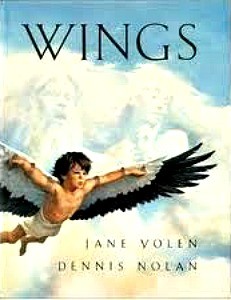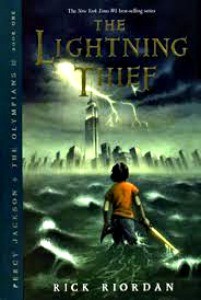
The Horn Book website has lots of material of interest to teachers. Here are some areas to explore. And follow us on Twitter: #lollysclass
|
Interviews with authors and illustrators Recommended books -- reviews and themed book lists |
School -- reading in school, author visits, and more Suggestion box: what else to you want to see in Lolly's Classroom? |
Tales as old as time
It should hardly come as a surprise to anyone that when it comes to the Disney princesses, I find myself identifying most with Belle, the brunette bookworm from Beauty and the Beast.
You can only imagine the delight I had in going to see the “stage adaptation” on my thirteenth birthday. Settling into my seat, I couldn’t wait to observe how the tiny French village would come alive and hear the swish of that red rose petal as it drops onto the glass table. I was eager to hum along with the jaunty tune of “Be Our Guest.” Two hours later, I walked out of the theater in a bit of shock — this play had been set in modern day New York, our “Belle” was the daughter of a computer technician, and the rose that signals the end of the Beast’s life was now a clock tower connected to the library.
Yet what had actually shocked me was that I loved this play just as much as I had loved Disney’s classic! It was my first look into the wide world of adaptations, a critical layer of storytelling that allows students to both compare and contrast works of literature.
I mention this story because our class has now moved on from Ancient Egypt to Ancient Greece in our concept-based units. On the first day of our Greek reading groups, I held up Homer’s The Odyssey, the one translated by Robert Fagles and a staple in the syllabus of literature classes. The pages of my thick copy are a bit frayed and marked up with annotations. I watched ten pairs of eyes peer at the book, and I knew their thoughts were racing, “Is she really going to make us read that?” I let them sweat it out for a couple more minutes before I finally handed out their version — The Odyssey, courtesy of Wishbone classics. We laughed, but it served as an excellent backbone for what would become the key concept of this unit — that myths are told by different people in different ways, yet the heart or theme of the story resides in each one.
 The third grade teaching team has utilized an abundance of mentor texts that allow students to make comparisons of mythological tales. We have used The Book of Greek Myths by Ingri D’Aulaire, as a core Read Aloud text — just long enough to maintain their interests, yet concise enough to keep students engaged in the tales of Persephone swallowing the pomegranate seeds, or Hera’s revenge on the women who sway the heart of Zeus.
The third grade teaching team has utilized an abundance of mentor texts that allow students to make comparisons of mythological tales. We have used The Book of Greek Myths by Ingri D’Aulaire, as a core Read Aloud text — just long enough to maintain their interests, yet concise enough to keep students engaged in the tales of Persephone swallowing the pomegranate seeds, or Hera’s revenge on the women who sway the heart of Zeus. Students have gained a lot of practice using Venn diagrams to compare the D’Aulaires text with that of picture books like Wings by Jane Yolen, graphic novels like The Olympians series by George O’Connor, and of course, Rick Riordan's Percy Jackson series that never sits on the bookshelf for even a night.
Students have gained a lot of practice using Venn diagrams to compare the D’Aulaires text with that of picture books like Wings by Jane Yolen, graphic novels like The Olympians series by George O’Connor, and of course, Rick Riordan's Percy Jackson series that never sits on the bookshelf for even a night. Not studying the ancient civilizations in your classroom? No worries! As the unit continues, students have gained more independence in making the connections amongst versions of stories outside of the Greek mythology realm. In fact, over the holidays, two of our students brought in different versions of The Gingerbread Man. We made the same comparisons that we had with the Greek stories, and had just as much fun!
Not studying the ancient civilizations in your classroom? No worries! As the unit continues, students have gained more independence in making the connections amongst versions of stories outside of the Greek mythology realm. In fact, over the holidays, two of our students brought in different versions of The Gingerbread Man. We made the same comparisons that we had with the Greek stories, and had just as much fun!What are some other adaptations you can bring into your classroom?
Editor's note: for more on adaptations and transformations, check out the March/April 2015 Horn Book Magazine.
RELATED
RECOMMENDED
ALREADY A SUBSCRIBER? LOG IN
We are currently offering this content for free. Sign up now to activate your personal profile, where you can save articles for future viewing.







Add Comment :-
Be the first reader to comment.
Comment Policy:
Comment should not be empty !!!